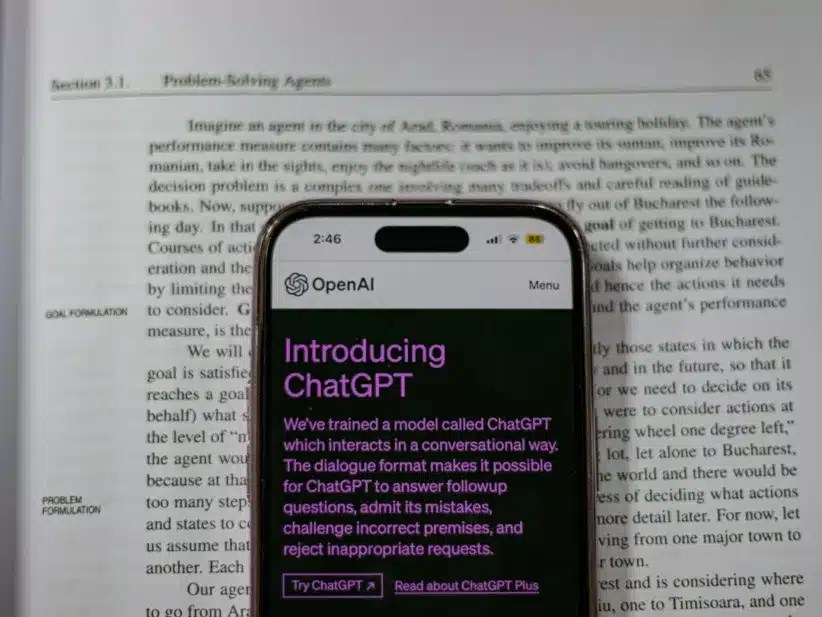
Is Your Child Using AI for Homework?
It’s back-to-school time, and it’s likely that your kid’s least favorite part of this season is going back to doing their nightly homework. As artificial intelligence (AI) becomes increasingly everywhere and used in various tasks, it’s important for parents to understand how their children might be using these tools, especially for their education and homework. Here’s a guide to help parents navigate this new world cautiously and effectively.
Types of Tools
AI tools range from grammar and spell checkers to more advanced tools like essay generators, coding assistants, and problem-solving apps. It’s important for parents to familiarize themselves with these tools and understand what they do. For example, Grammarly is an AI-powered writing assistant that helps with grammar, punctuation, and style. This particular software has been around since 2009, and it’s generally used and acceptable for use by college and sometimes high school students for help with correcting essays and emails.
ChatGPT is a conversational AI that can answer questions, generate text, and assist with writing tasks. This software is much newer, only being around since 2022. Despite only existing for a couple of years, ChatGPT has become smarter and more powerful since its debut. That’s because this platform is an example of machine-learning, meaning it becomes more and more intelligent the more it is used.
Photomath is an app that uses AI to solve math problems and explain the steps, designed for use with a smartphone’s camera to scan and recognize math equations. There are many other examples, but these three are the most popular platforms in each category of AI tool. By understanding these tools and the tasks they perform, parents can better monitor their children’s use and guide them towards appropriate and constructive usage.
It’s Everywhere
AI is becoming an ever-expanding part of life. Last year, BestColleges surveyed 1,000 undergraduate and graduate students on their usage and opinions on AI. The results show that 56% of college students have used AI on homework assignments or exams. This number is likely much higher than it was a year ago as the technology has become smarter and more prevalent in a short amount of time. Also keep in mind that this is a survey of college students, who are more likely to know how to properly access these platforms and use them for their purposes. But as the tech becomes more known and available, younger and younger students are accessing it.
In a study conducted through Scientific Reports, 74% of surveyed students from various countries said that they’d use ChatGPT for their homework. At the same time, 70% of educators believe that using AI in school assignments constitutes plagiarism. The research also showed that the AI was capable of generating essays at or above the grade level it was tasked to write.
AI and I
So, if AI is everywhere and could someday be used by everyone, what should I do if my kid is using it? Is it even worth it to discourage usage if the tech is here to stay? The short answer is yes, but it’s a tricky balancing act.
Firstly, you should familiarize yourself with the exact app or platform that your child is using. For instance, using a tool to check grammar is different from having it write an entire essay in most cases. Regular supervision and discussions about how AI tools can also help ensure that they are used appropriately.
Secondly, familiarize yourself with the school and classroom’s policy on AI. Talk to teachers about what they may have already told their class regarding AI or ask them if they can incorporate a lecture on AI practices into a lesson plan.
Rather than immediately scolding your kid if you catch them with AI tools, instead reframe the conversation around what these tools really do and how they can either help or hold back educational progress. Encourage your child to share if and what they’ve learned and how they’ve used the tools to supplement their studies.
For example, using Photomath to help understand how or why an equation is solved in a certain way is actively educational, and can even be a useful tool for parents who want to help their kids with math homework. But simply using it to copy answers is detrimental to the learning process.
And remember that even if AI is becoming more intelligent, that doesn’t mean it will always be accurate. It’s important to always teach kids to double-check their answers and to verify information through multiple sources. AI can be helpful as an additional way to check your work, but it should never be your first or only source of information and problem-solving.
Psst…Here is What Parents Need to Know About Sponsored Content























